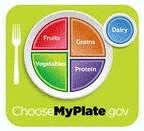Nutrition and Health Sciences, Department of

Department of Nutrition and Health Sciences: Dissertations, Theses, and Student Research
Date of this Version
Spring 4-2011
Document Type
Thesis
Abstract
Objective: The purpose of this study was to estimate Omega-3 (n-3) fatty acid intakes in colonoscopy patients and to examine knowledge and attitudes held about dietary fats.
Subjects/Methods: Men (n=32) and women (n=47) patients were recruited from a Midwestern gastroenterology clinic. A dietitian obtained informed consent, a food recall and response from a 152-item n-3 food frequency questionnaire (n-3 FFQ) at the clinic using visuals and food models. Two additional 24-h recalls, including a weekend recall, were returned by mail. A questionnaire measuring diet fatty acids knowledge, diet attitudes and beliefs was also obtained.
Results: Daily intake of n-3 fatty acids was 0.91 ± 0.59 g (mean ± SD) from food recalls and 1.05 ± 0.63 g from the n-3 FFQ. Pearson correlation of n-3 fatty acids intake between the food recalls and n-3 FFQ was 0.35 (p<0.01). Ninety percent of n-3 fatty acid intake as estimated with n-3 FFQ was provided by 56 foods. The top three food category contributors and percent of n-3 fatty acid intake were nuts/seeds (21), seafood (15), fats/oils (13). Correct scoring ranges for saturated fats, monounsaturated fats, polyunsaturated fats, n-3 fats and omega- 6 fats were 44 – 84 %, 27 – 40%, 11 – 34%, 10 – 41%, and 3 – 4% respectively. The majority of participants felt that food choice affects
disease status (63%) and healthy food choices reduces the chance of contracting diseases (96%).
Conclusion: Twelve percent of men and 30% of women colonoscopy patients met the recommended Adequate Intake for n-3 fatty acids as assessed by 3-24 h recalls. The top n-3 fatty acid food contributor and food category were of plant origin and marine sources were second. Colonoscopy patients overall knowledge about the types of fatty acids was low. They were most knowledgeable about saturated fatty acids. This may partially explain why low n-3 intakes were found. Both men and women generally held positive beliefs about n-3 fatty acids and colon cancer. Both genders indicated a willingness to make a change but did not have the information needed to do so.
Advisor: Nancy M. Lewis


Comments
A thesis Presented to the Faculty of The Graduate College at the University of Nebraska In Partial Fulfillment of Requirements For the Degree of Master of Science, Major; Nutrition and Health Science, Under the Supervision of Professor Nancy M Lewis. Lincoln, Nebraska: April, 2011
Copyright 2011 Cindy Kaminski